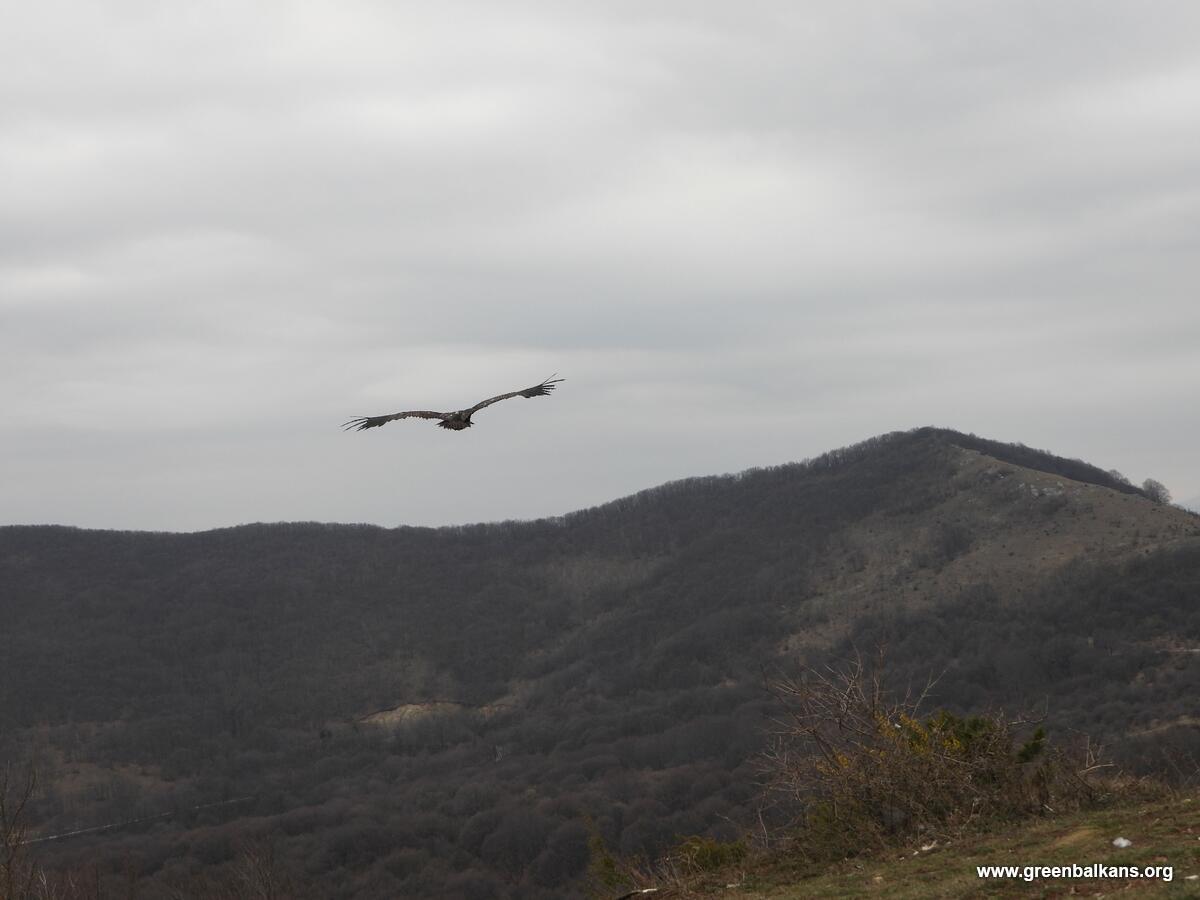Two pairs of black vultures are nesting in artificial platforms set up for them in Alentejo (southern Portugal) as part of a vulture conservation project managed by Liga para a Protecção da Natureza (LPN), a Portuguese conservation organisation, more than 40 years after the species disappeared as a breeding species from the region.
Black vultures nest in nearby Extremadura and Andalucía in Spain – where their populations have been increasing to reach maximums in recent years – and they forage extensively across southern Portugal, but this colonisation is nonetheless remarkable as this species is extremely faithful to existing colonies, and takes a lot of time to establish new colonies elsewhere.
The species became extinct as breeding species in Portugal in the 1970s, mostly due to the use of poisoned carcasses targeting unwanted predators. An increasing population in Spain saw the species first return to breed in central Portugal (Tejo Internacional) in 2010 (where now there is a small colony of about 10 pairs), and then in north-eastern Portugal last year (one single pair). Now they are also breeding in southern Portugal, in Herdade da Contenda, a large estate owned and managed by the Moura Municipality. One of the pairs is incubating, while the other one was still preparing the nest in the end of March.
The event is a great reward to the efforts of LPN, who completed a project – funded by the EU LIFE fund – on vultures in the region last year, including the construction of nest platforms for black vulture in suitable habitat. The VCF has visited the project last summer and discussed with LPN´s managers several issues regarding vulture conservation in the region.
But it is not all good news for vultures in Iberia. The introduction of veterinary diclofenac – an anti-inflammatory painkiller used to treat livestock – in nearby Spain is a major emerging concern. This drug is fatal to vultures that feed on contaminated carcasses, and is thought to be responsible for the catastrophic decline of vultures in Southeast Asia (over 90% in just 20 years).
While diclofenac has now been banned in the Indian subcontinent, it is currently available for sale in Spain and Italy. To date, no vulture deaths have been traced to the drug, but the risk is there. The VCF is working actively with many partners to try to ban the drug from Europe.



